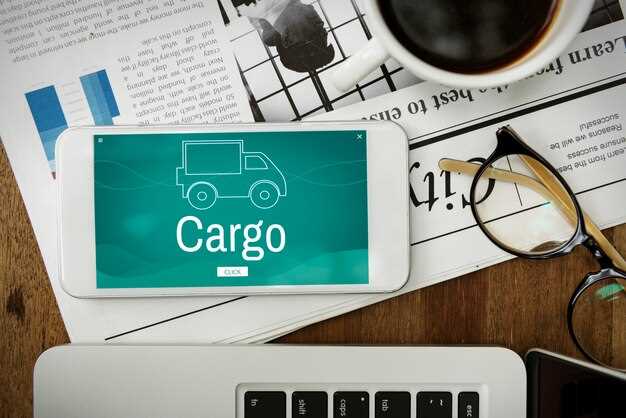
When it comes to transporting a salvage car, understanding the legalities and the safest practices is essential. Shipping a car that has been deemed a total loss or salvage can be a complicated process, especially if you’re unfamiliar with the necessary regulations and requirements. This guide aims to illuminate the critical steps involved in safely and legally shipping your salvage vehicle.
First and foremost, it is vital to check the local and state regulations regarding salvage cars. Different jurisdictions have unique laws governing the shipping and ownership of such vehicles. Ensuring compliance with these regulations will not only protect you from potential legal issues but will also facilitate a smoother transportation process.
Additionally, selecting the right transport service is crucial. Not all shipping companies are equipped to handle salvage cars, and finding one that specializes in this area will minimize the risk of damage during transit. By understanding the key factors involved in this process, you can ensure that your salvage car is shipped securely, legally, and efficiently.
Understanding Legal Requirements for Salvage Car Transport

Transporting a salvage car involves navigating various legal requirements to ensure compliance with local, state, and federal regulations. Being informed about these regulations is crucial, as it can affect the shipping process and your legal liability.
1. Title Regulations: Before shipping a salvage car, it’s essential to obtain a salvage title from your state’s Department of Motor Vehicles (DMV). This title specifies that the vehicle has been declared a total loss by an insurance company. Without a salvage title, you may face legal challenges during transport.
2. Transportation Permits: Depending on the state, you may need to secure specific permits for transporting a salvage vehicle. These permits ensure that the transport is deemed legal and that the vehicle complies with safety and environmental regulations during its journey.
3. Compliance with Local Laws: Each state has its own set of laws regarding salvage vehicles. It’s important to research your local laws related to the shipping and transport of salvage cars. Some states may have additional inspections or requirements that must be met before the shipment can proceed.
4. Insurance Coverage: When shipping a salvage car, it is advisable to secure insurance coverage that applies to the transport. Many transport companies will offer insurance, but understanding the terms and limits of coverage is critical to protecting your investment during transit.
5. Record Keeping: Maintain thorough records of all documentation related to the salvage vehicle, including the title, any permits, and correspondence with transport companies. These documents may be necessary for legal reasons or if questions arise during the shipping process.
6. Choosing a Reputable Transport Company: Ensure you select a transport company that specializes in salvage vehicles. They should understand the unique legal requirements and processes involved in handling salvage cars, ensuring a smoother and more compliant shipping experience.
By comprehensively understanding and adhering to the legal requirements for transport, you can avoid potential pitfalls and ensure that your salvage vehicle is shipped safely and legally.
Choosing the Right Shipping Method for Salvage Vehicles
When it comes to shipping a salvage car, selecting the appropriate transport method is crucial for ensuring safety and compliance with legal requirements. There are several options available, each with unique advantages and considerations.
One common method is open transport, where the vehicle is loaded onto a truck without any covering. This option is typically more affordable, making it appealing for those on a budget. However, exposed cars can be vulnerable to environmental elements during transit.
Another viable choice is enclosed transport. This method offers greater protection by placing the salvage vehicle inside a fully enclosed trailer. While this option may come at a premium, it is ideal for high-value or rare cars that need extra care during shipping.
For local shipments, flatbed transport can be an efficient way to move a salvage car. This method involves loading the vehicle onto a flatbed truck, allowing for easier access and reduced risk of damage. It is particularly useful for vehicles that are not operational.
When deciding on a transport method, consider the condition of the salvage vehicle, your budget, and the urgency of the shipping. Researching shipping companies and their policies ensures that you select a reliable service that aligns with your needs.
Additionally, be aware of legal regulations regarding salvage vehicles in your area. Some states have specific requirements for transporting cars with salvage titles, so verifying compliance with these laws is essential before initiating the shipping process.
Preparing Your Salvage Car for Safe Transport

When it comes to shipping a salvage car, preparation is key to ensuring the process is both safe and legal. Properly preparing your vehicle minimizes risks and ensures compliance with regulations.
Follow these steps to prepare your salvage car for transport:
- Inspect the Vehicle
- Check for any loose parts that might detach during transport.
- Ensure all fluids (oil, coolant, and fuel) are at safe levels or drained appropriately.
- Document any damage through photographs for your records.
- Remove Personal Belongings
- Clear out any personal items to avoid theft or damage during shipping.
- Take out aftermarket accessories that could be lost or damaged.
- Secure the Vehicle
- Ensure that the car is in gear or in park, depending on the transmission type.
- Lock the doors to prevent unauthorized access during transport.
- Verify Documentation
- Gather necessary legal documents, including the title and bill of sale.
- Check local regulations regarding salvage car transportation.
- Choose the Right Shipping Method
- Decide between open or enclosed transport based on the car’s condition and your budget.
- Research and select a reputable shipping company specialized in salvage cars.
By thoroughly preparing your salvage car for transport, you can ensure a smoother shipping experience while mitigating potential issues down the line.
